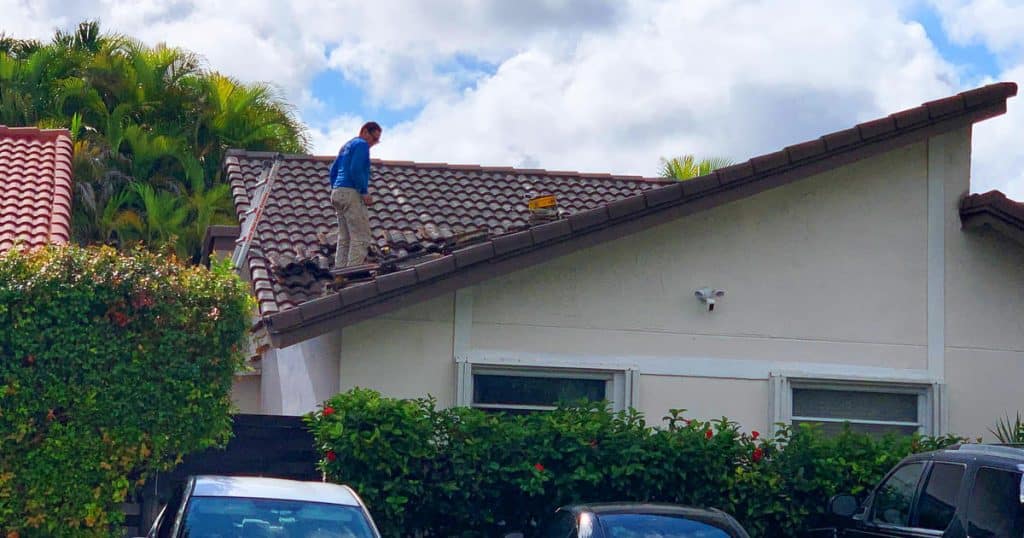MIAMI – A major shake-up in property insurance has insurance industry players optimistic. An expert tells us that “groundbreaking legislation” is being prepared in Tallahassee.
Yet the current situation remains dire and it is uncertain if and when you will see savings passed on.
“The market is still in a very dangerous position,” said Mark Friedlander, director of communications at the Insurance Information Institute.
He points out that this year, seven insurance companies in Florida have become insolvent or are state-supervised. The main culprit, he says, is litigation.
“The most liberal one-sided attorney provision in the country,” Friedlander added. “One-way attorney fees have been the driving force behind this insurance crisis.”
The proposed legislation eliminates the guarantee that insurance companies must pay 100% of attorneys’ fees if a policyholder wins a lawsuit against them.
“This year, six insurance companies were sued for one-way attorney fees,” Friedlander continued.
Closed doors provide fewer insurance options, increasing costs for the homeowner.
“A policy that should be $1,500 now costs five, six, seven thousand dollars because insurers are losing so much money on this stuff,” said Alex Ray of John Galt Insurance.
It helps match consumers with insurance plans. He says current market conditions make it difficult to write policies for his clients.
“We work with about 50 different companies,” Ray added. “That was five or six years ago, we quote, and through the system you had about 30 to 40 options. Now you get three or four back.”
Less choice equals a higher price. Its customers are now reducing their coverage, citing that premiums have increased by 10 to 15% on average since May.
“Not as comprehensive a policy as they would have years ago, because that’s all they can afford,” Ray said.
Friedlander thinks litigation reform in Tallahassee can stabilize the market for years to come.
“It’s not going to change the dynamic,” Friedlander said. “Your insurance is likely going to go up next year. You’re going to pay more for home insurance in 2023 than in 2022. Hopefully beyond that we’ll start to see some stability in the market. Rates are moderate it a bit, and we’ll see more choices.”
Friedlander adds that the legislature is also seeking to block the awarding of benefits on property insurance claims. This means that the control of a claim cannot be entrusted to a lawyer or a contractor. He thinks it could stabilize what is currently, as he put it, a “treacherous” market.
Wait, there’s more!
People usually refer to Citizens Insurance as “the insurance of last resort”. Well, it’s now the insurer of choice for many. If the legislation proposed in Tallahassee is passed, people will no longer have the choice of whether or not to purchase flood insurance.
“Varies on the risk range from 400 to 500 hundred dollars a year to about ten thousand dollars a year,” Ray said.
The news of compulsory flood insurance could be costly for those who live near waterways.
“Houses on the intercoastal, new construction, your flood insurance will be $8-10,000 for the year,” Ray said.
Mark Friedlander of the Insurance Information Institute explains the potential new requirements even if you don’t live in a flood zone for Citizen policyholders.
“Must have flood insurance on par with the FEMA-supported National Flood Insurance Program, NIFP,” Friedlander continued.
They can buy on the private market, in accordance with the provisions.
This is one of many changes that state lawmakers are proposing to citizens. The state-run insurance company is expected to have 1.2 million policyholders by the end of the year.
“They’ve become the number one property insurer in Florida,” Friedlander said. “They want to go the other way because it’s a very unhealthy state.”
“Joe, if they run out of supplies, Citizens runs out of supplies, all Florida consumers will pay to replenish them.”
The proposed legislation aims to drive people out of the citizens. At renewal time for current policyholders, Friedlander says they should seek quotes from the private market. The policyholder must switch to the other insurer if the premium is less than 20% of the estimated Citizens rate.
“So it’s not growing at uncontrollable rates like it has been,” Friedlander said.
Citizens welcome these proposed changes. Chairman and CEO Barry Gilway said, “This will bring more capital into the market and possibly improve the image of reinsurance.

